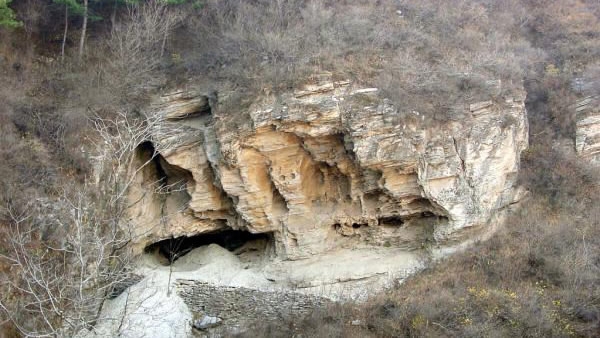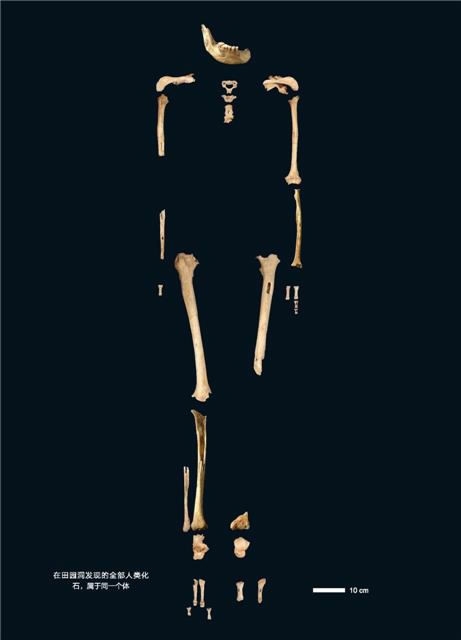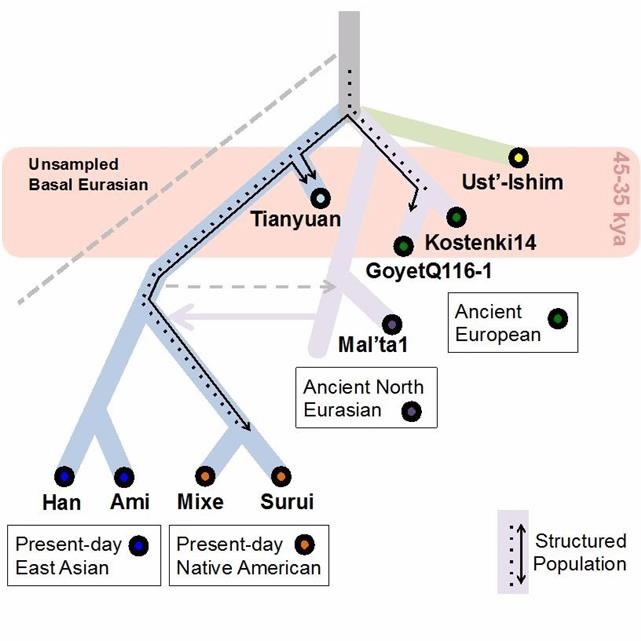
Tech & Sci
12:16, 14-Oct-2017
Researchers uncover peculiar diversity in 40,000-year-old Tianyuan caveman

Genome data from a 40,000-year-old man unearthed in Beijing shows a surprising diversity of the people living in the region and their complex genetic connections to other continents, according to a report published in an international journal on Friday.
Even though "Tianyuan man" was an ancient East Asian, he is not the direct ancestor of people in the region, which shows the multiplicity of Asian groups 40,000 years ago, the Beijing-based researchers found.
Using advanced sequencing techniques, a team led by Professor Fu Qiaomei of the Institute of Vertebrate Paleontology and Paleoanthropology at the Chinese Academy of Sciences (CAS) retrieved DNA from the bones of a man who died in Tianyuan Cave in Fangshan district 40,000 years ago, according to a report on the institution's official website.
The find was introduced in "40,000-Year-Old Individual from Asia Provides Insight into Early Population Structure in Eurasia" published in Current Biology on Friday.

Skeleton of Tianyuan caveman /CAS Photo
Skeleton of Tianyuan caveman /CAS Photo
However, the current genome is not complete and lacks gene fragments, Fu was quoted as saying by Shanghai-based news website thepaper.cn on Thursday.
The study suggests that the Fangshan caveman is genetically connected to an ancient European from Belgium of 35,000 years ago, a connection not found in other ancient Europeans' samples.
Therefore, it is "very possible" Tianyuan man had gene communication with an unknown group related to the ancient man of Belgium, showing the complex genetic history of Asians and Europeans, the institute reported.

Illustration of Tianyuan caveman's relations to other human species /CAS Photo
Illustration of Tianyuan caveman's relations to other human species /CAS Photo
Tianyuan man also possesses genetic similarities to South Americans in line with other international findings, the study found.
The Tianyuan man marks the earliest ancient DNA from East Asia and the first ancient genome-wide data from China, according to the institution website report.
Ancient humans have been sequenced in Europe and Siberia, but few have been sequenced from East Asia, particularly China, where the archaeological record shows a rich history of early modern humans.
7km
Source(s): Global Times

SITEMAP
Copyright © 2018 CGTN. Beijing ICP prepared NO.16065310-3
Copyright © 2018 CGTN. Beijing ICP prepared NO.16065310-3